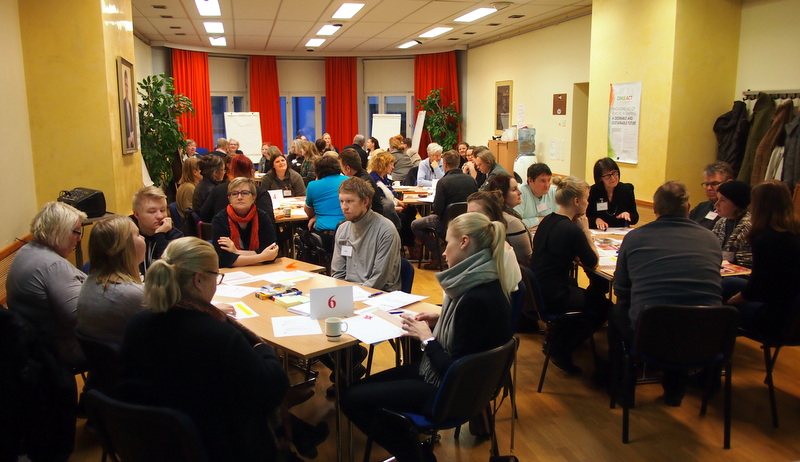Six visions on desirable and sustainable futures were developed by 42 citizens in the CIMULACT NCV workshop in Helsinki on January 9th, 2016 :
- VALUES – immateriality and minimalism
- Predictive health tracking
- Efficient recycling
- The future of responsible consumption
- Eco-efficient nutrition and living
- Community as an asset
The NCV workshop in Helsinki was part of a series of CIMULACT workshops across 30 European countries, contributing to a total of 180 citizen visions. These visions will be developed to research priorities and policy advice for the European Commission’s Horizon 2020 programme at latter stages of the CIMULACT project.
More information on the CIMULACT project is available at www.cimulact.eu.
—
Seuraavat kuusi visiota toivottavista ja kestävistä tulevaisuuksista kehitettiin 42 kansalaisen toimesta CIMULACT-työpajassa Helsingissä 9.1.2016 :
- ARVOT – aineettomuus ja minimalismi
- Ennakoivaa terveyden seurantaa
- Tehokas kierrättäminen
- Vastuullisen kuluttamisen tulevaisuus
- Ekotehokas ravinto ja asuminen
- Yhteisö voimavarana
Helsingin visiotyöpaja oli osa CIMULACT-hankkeen toteuttamaa työpajasarjaa, jossa kansalaiset kehittivät 180 visiota 30 Euroopan maassa. Visioiden pohjalta hankkeessa kehitetään tutkimusprioriteettejä ja politiikkasuosituksia Euroopan komission Horisontti 2020 –ohjelmaan.
Lisätietoa CIMULACT-hankkeesta ja sen etenemisestä löytyy osoitteesta www.cimulact.eu.

